This blog post offers valuable insights and tips to enhance your performance in the CKA (Certified Kubernetes Administrator) exam. However, before delving into the tips, let's begin with a brief overview of the significance of the CKA exam in today's context.
Kubernetes is known as today’s Linux operating system for the Cloud.
As reported by the Linux Foundation’s 10 annual jobs report, 77% of organizations are growing their use of cloud/container technologies.
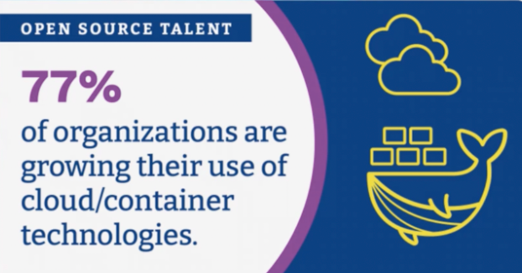
The 2022 Container Report by Datadog found that nearly half of all organizations using containers run Kubernetes to deploy and manage at least some of those containers. So, it is no wonder engineers are flocking to learn Kubernetes, and the CKA exam is one of the most trending IT certifications today.
The Udemy for Business workplace learning trends report indicated an 842% increase in the consumption of CKA courses.
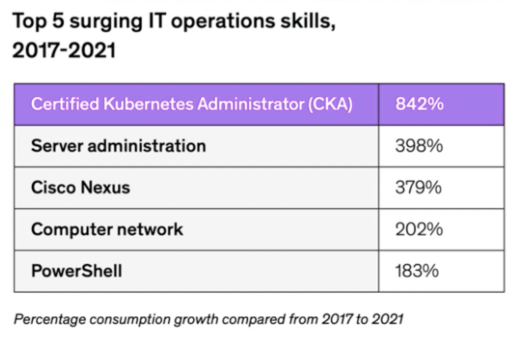
Kubernetes has 3 hands-on exams as of today - the CKA/CKAD/CKS. The CKA is for administrators, CKAD is for application developers, and CKS is for security specialists.
In this blog, we will delve into the details of the CKA exam. This is for you if you will be working on the administrative side of Kubernetes such as designing the cluster architecture, installation and configuration of the cluster, workload management, networking, storage, and troubleshooting.
Try the Kubernetes Deployments Lab for free

Before we delve into the top tips, let's begin by providing an overview of the exam itself.
The exam focuses on five key domains:
- 25% on Cluster Architecture, Installation & Configuration
- 15% on Workloads & Scheduling
- 20% on Services & Networking
- 10% on Storage
- 30% on Troubleshooting
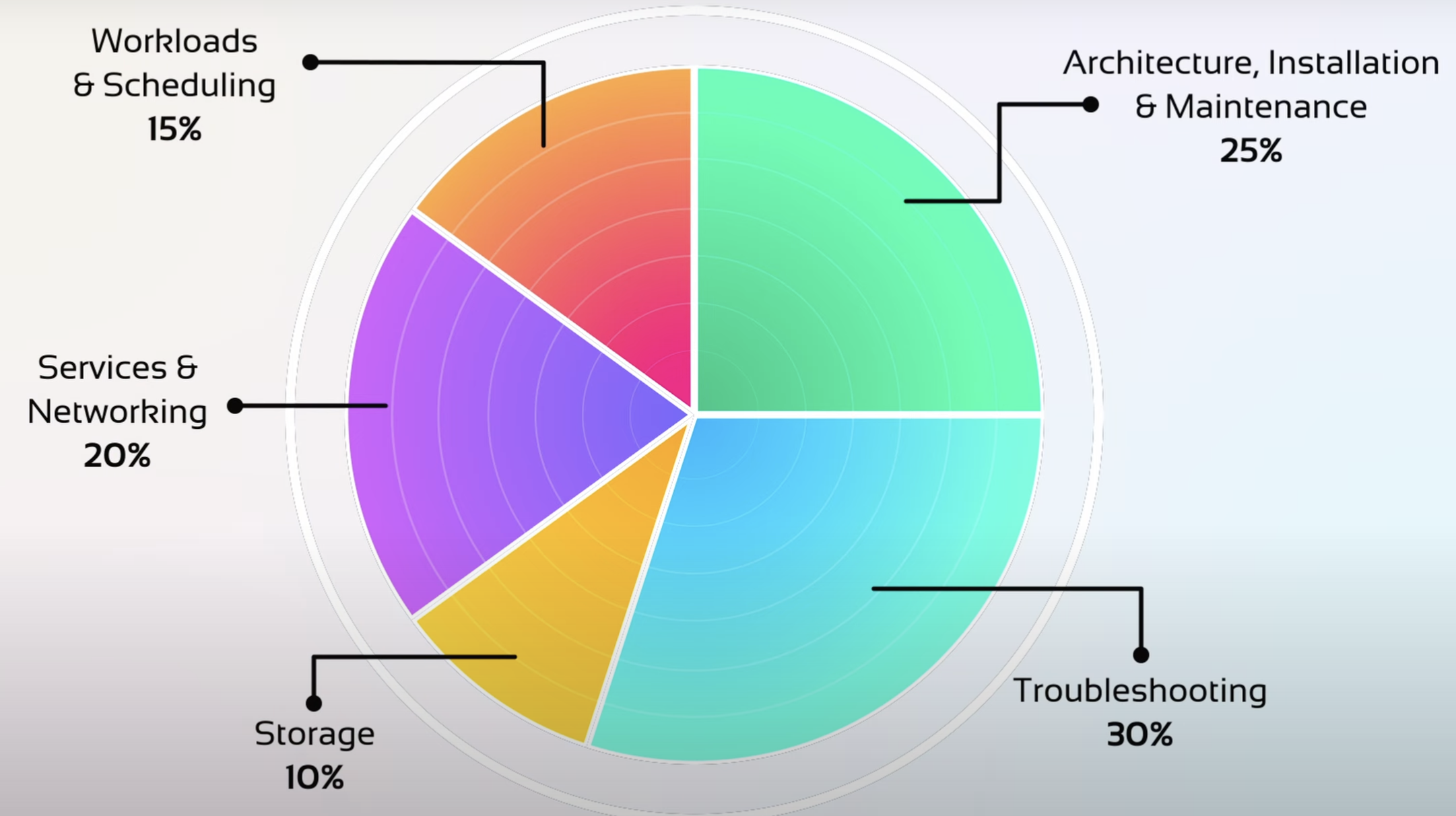
The exam consists of 15-20 performance-based tasks that you need to complete within 2 hours. You will be given access to Kubernetes clusters, and you'll be assessed based on your ability to perform tasks using the command line.
Allow us to provide some insights into the exam environment itself. By the way, all the information shared here can already be found on the CNCF website in the CKA exam FAQ section.
The CKA exam environment has 6 clusters. Each has its own set of nodes. You will be required to switch contexts between each of them during the exam. So, it’s very important to note that you do that before attempting the exam. One of the common mistakes people make is doing things on the wrong cluster. Toward the end of this blog, you will find additional resources to help you tackle these problems.

Without wasting any more time, let's jump right into the essential tips to crack the CKA exam.
Tip No.1
This is a hands-on exam. So make sure you're very comfortable with the Kubernetes command line interface (kubectl) and practice typing commands quickly and accurately.
Use aliases if needed. You are going to be running the kubectl command many times during this exam. So you could save a second each time you type the command. So, setting an alias like k for kube-control might give you an extra minute or two towards the end of the exam.
alias k=kubectlHowever, I have also seen people recommend things like the following.
alias kgp="k get pod"
alias kgd="k get deploy"
alias kgs="k get svc"
alias kgn="k get nodes"
alias kd="k describe" alias kge="k get events --sort-by='.metadata.creationTimestamp' |tail -8"A recommendation would be to avoid becoming overly fixated on it, either. It's not necessary to devote a full hour of the two hours you have available solely to configuring aliases, shortcuts, and other settings.
Tip No.2
You are not required to take the exam on your own; you are allowed to have a companion, which in this case, is the Kubernetes documentation pages. During the exam, you are permitted to access and refer to the Kubernetes documentation pages to retrieve essential information.
This feature distinguishes the Kubernetes certification exam from many others as it focuses on your ability to effectively utilize documentation rather than testing your memorization skills.
It is important to familiarize yourself with the location of specific information within the documentation and learn efficient searching techniques. Please note that using bookmarks is not permitted, so it is advised to refrain from attempting to do so.
Tip No.3
Please review your work after each question to ensure accuracy. It is important not to spend 10-15 minutes working on a question and overlook any potential errors.
For example, if you need to create a pod, don't simply run the command and assume it is functioning correctly before moving on to the next question. Instead, take the time to verify its status by using the "kube-control get pods" command and confirming that it is running as intended.
Many students mistakenly believe they completed a task correctly, only to discover they did not receive credit for it. Avoid finding yourself in that situation by double-checking your work thoroughly.
Tip No.4
Another reason why individuals mistakenly believe they have accomplished a task correctly, when in fact they have not, occurs when they neglect to utilize the copy and paste function. Therefore, the next recommendation is that it is essential to COPY and PASTE while taking an exam.
Frequently, the exam questions will feature peculiar names for the objects you are required to create. For instance, a question might ask you to create a pod named "xyz-33568932" or something similar.
If you attempt to manually type this name and make even a single mistake, you will not receive any credit for that particular question. Hence, it is advisable to always copy the name directly from the question and paste it into the terminal.
Tip No. 5
The next tip pertains to effective time management during the exam. The exam consists of approximately 15 to 20 questions, each varying in difficulty. Some questions may be easier, while others may be more challenging.
Additionally, each question carries a different weight based on its difficulty level. Therefore, it is important to make smart decisions regarding the time allocated to each question. Avoid getting stuck on a single question and wasting all your time.
Remember, you don't need to achieve a perfect score to pass the exam. A minimum of 66% or above is sufficient to clear the CKA exam. Even if you don't answer all questions correctly, you can still pass. It is advisable to begin with the easy questions first to ensure they are answered correctly. Also, set time limits for each question. If you find yourself stuck on a question for more than 10 minutes, skip it and come back to it at the end of the exam.
So those are the top 5 tips to clear the CKA exam. And here is a quick learning guide we have put together on KodeKloud.
Now, depending on your technical skills, you may start anywhere on this path. You must have some Linux and networking knowledge, as the exam environments are based on Linux. For those in need of a refresher on Linux, a highly recommended resource is the Linux basics course. This course offers hands-on labs to help you learn Linux effectively.
Kubernetes is a container orchestration system, so knowledge of containers is a must. If you are new to containers, go through the Docker for Beginners course. It’s a 3-hour course that will get you up to speed with containers in no time.
For individuals new to Kubernetes, the Kubernetes for Beginners course comes highly recommended.
Once you gain the basics of Kubernetes, our CKA exam prep course will help you learn everything you need to know for the CKA exam, along with hands-on labs and mock exams at the end.
And finally the cherry on the cake is our Ultimate CKA Mock exam series that is exclusively available on KodeKloud and has over 10 mock exams with an exam environment having a similar setup as the real exam. You have multiple clusters that you will have to switch back and forth, and that will help you prepare for the actual exam.
Check out our CKA Learning path:
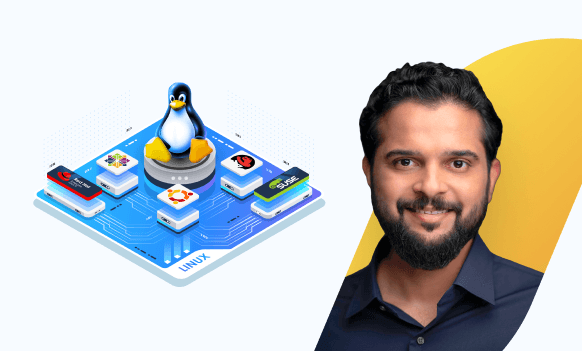
We are also a certified Kubernetes Training Partner. So you can rest assured you are in safe hands.
Now, One of the commonly asked questions pertains to the preparation time needed for the exam. It all depends on where you stand today and how much time you are willing to put in per day/per week to prepare for the exam.
We have had students who have taken 3 to 6 months to prepare for the exam. And others who already had some experience just sat through 2 weeks straight and passed the exam at the end of it.
But at a high level, here is a chart. If you spend 2 hours a day, you should be able to complete the CKA course in about 3 months, 4 hours a day in about 1.5 to 2 months, and 6 hours a day in about 1 to 1.5 months. You can see the time it would take for the other courses as well in the following list. Of course, this is completely dependent upon how fast you pick things up, so it may be different for different people.
So, what’s next once you prepare for the exam? Register for the exam on the CNCF website. As of today, it costs 395$. You get two attempts for the exam. If you fail the first one, you can attempt again a second time. And no, you don’t have to attempt it the second time if you pass the first attempt.
Now, you may have a lot of questions about the exam day itself - what you can do and cannot do, such as the testing room, what monitors to use, what keyboards to use, what camera you can use, whether you can use an office laptop, etc. We have collated a list of all the questions from our users and created an FAQ that’s available on our Github page here. So check it out.
Conclusion
The CKA exam is practical and performance-based for a reason. CNCF wants to make sure they certify people who have actual skills. So it’s very important that you get your intentions right and your heart in the right place when you prepare for this exam.
Your goal and only goal should be to learn as much as you can while you prepare for the exam. Consider the exam as just a cover to push you to spend as much time as you can learning the concepts. Understand that the real win here is the knowledge you gain by putting yourself through months of learning and practice.
And not the piece of paper you get at the end of it. Try to enjoy the journey of learning more than obtaining the certification itself. Ultimately, the certificate itself is not going to get you anywhere or be of any value if you haven’t actually learned the concepts well enough.
More on Kubernetes certifications:
- The Ultimate Guide to Certified Kubernetes Administrator (CKA) Exam
- Kubernetes Certifications: CKA vs CKAD
- Kubernetes and Cloud-Native Associate (KCNA) Course: Your Certification Guide
- CKA vs. CKAD vs. CKS – What is the Difference
- CKS Exam Guide: Overview, Tips, and Resources
- Tips and Tricks to Pass the CKA and CKAD Exam
- CKA, CKAD, and CKS - Frequently Asked Questions


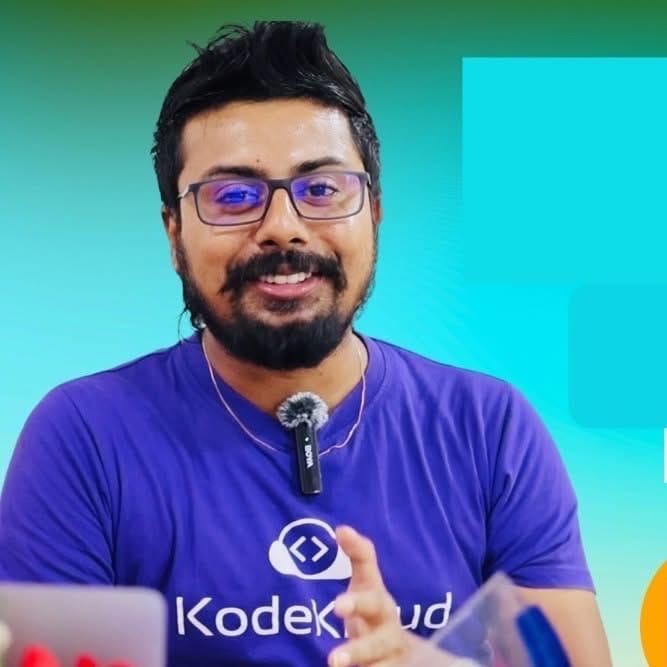
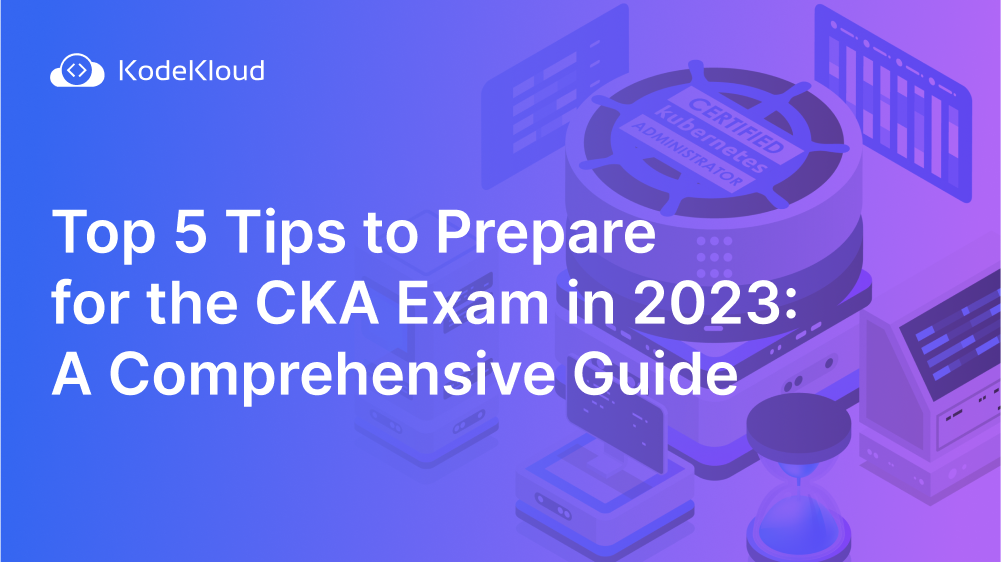

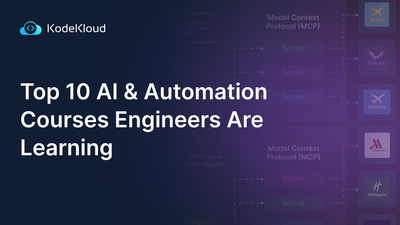
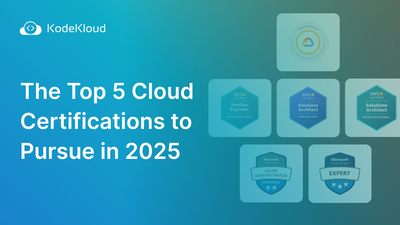
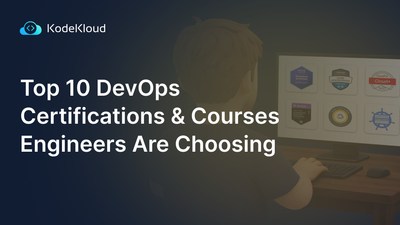



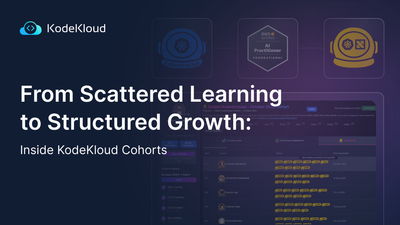
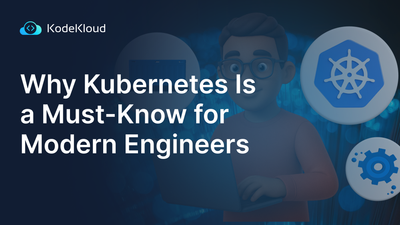



Discussion